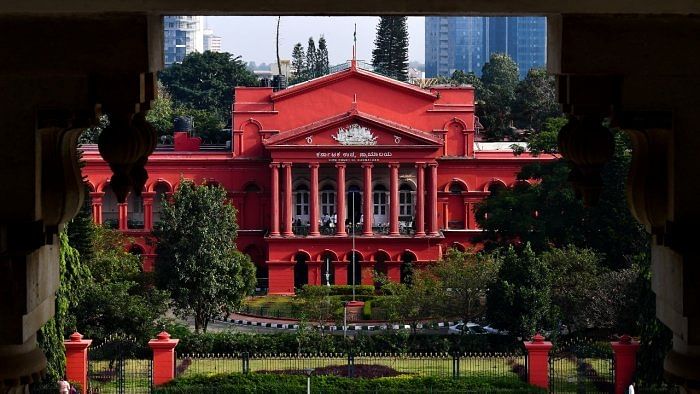
A division bench headed by acting Chief Justice Alok Aradhe on Thursday disposed of a PIL filed in 2016 against Ramachandrapura Mutt stating that an efficacious remedy is available under section 92 of Civil Procedure Code.
The petitioners, Edurkala Ishwar Bhat and others, had sought various directions against Ramachandrapura Mutt of Hosanagar taluk in Shivamogga district, and it’s seer Ragahveshwara Bharathi.
The petitioners, claiming to be devotees of the Mutt, had sought for removal of the seer, framing of guidelines for mutts, setting up of a new management committee to oversee the mutt’s day-to-day affairs as well as a court-monitored investigation in the cases/complaints involving the seer.
The court declined to go into these issues by exercising the extraordinary jurisdiction of the high court under Article 226 of the Constitution and to issue a writ of mandamus to direct the state government to exercise its power under Article 162 of the Constitution to frame a scheme for administration of the Mutts.
The court noted that in a criminal complaint registered in 2014, the seer was discharged and the same has been affirmed by the high court by an order dated December 29, 2021. The bench also pointed out that two petitions filed under section 92 of the Code of Civil Procedure were dismissed in 2017. Similarly, in respect of another offence pertaining to suicide, the proceeding has been stayed by the high court and the matter is subjudice, the bench observed.
“The Legislature has expressly excluded the Mutts and Temples attached to the Mutts, as they are headed and managed by mathadipathis. In any case, the petitioners have an alternative efficacious remedy under Section 92 of the Code of Civil Procedure. Therefore, we are not inclined to exercise the extraordinary discretionary jurisdiction under Article 226 of the Constitution of India, and therefore, writ petition is held to be not maintainable,” the bench said. However, the bench has reserved liberty to the petitioners to take recourse to the remedy provided under Section 92 of the Civil Procedure Code.